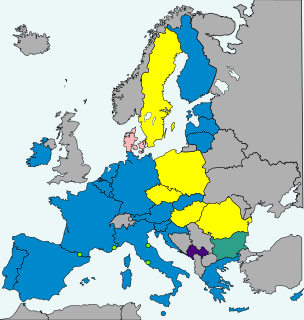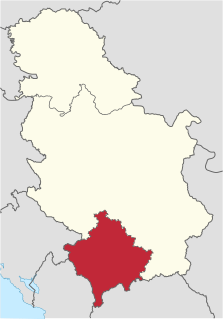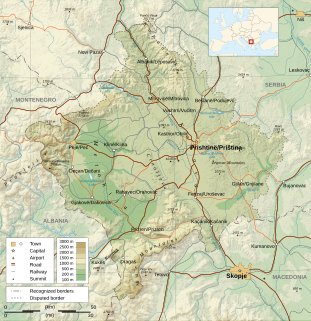List
| Rank | Country | Airport | City | Passengers 2011 | Passengers 2012 | Passengers 2013 | Passengers 2014 | Passengers 2015 | Passengers 2016 | Passengers 2017 | Passengers 2018 | Passengers 2019 | Passengers 2020 | 2019–2020 change |
|---|---|---|---|---|---|---|---|---|---|---|---|---|---|---|
| 1 | Belgrade Nikola Tesla Airport | Belgrade | 3,124,633 | 3,363,919 | 3,543,194 | 4,638,577 | 4,776,110 | 4,924,992 | 5,343,420 | 5,641,105 | 6,159,000 | 1,904,025 | ||
| 2 | | Pristina Airport | Pristina | 1,422,302 | 1,521,185 | 1,628,678 | 1,404,775 | 1,549,198 | 1,743,208 | 1,887,402 | 2,165,749 | 2,373,698 | 1,102,091 | |
| 3 | Zagreb Franjo Tuđman Airport | Zagreb | 2,319,098 | 2,342,309 | 2,300,231 | 2,430,971 | 2,587,798 | 2,776,087 | 3,092,047 | 3,336,310 | 3,435,531 | 924,823 | ||
| 4 | Skopje International Airport | Skopje | 759,928 | 828,831 | 984,407 | 1,208,359 | 1,452,465 | 1,649,374 | 1,868,272 | 2,158,258 | 2,358,548 | 710,711 | ||
| 5 | Split Airport | Split | 1,300,381 | 1,425,749 | 1,581,734 | 1,752,657 | 1,955,400 | 2,289,987 | 2,818,176 | 3,124,067 | 3,301,930 | 674,366 | ||
| 6 | Podgorica Airport | Podgorica | 611,666 | 620,117 | 680,854 | 701,320 | 748,175 | 873,278 | 1,055,142 | 1,208,525 | 1,297,365 | 343,187 | ||
| 7 | Dubrovnik Airport | Dubrovnik | 1,349,501 | 1,480,470 | 1,522,629 | 1,584,471 | 1,693,934 | 1,993,243 | 2,323,065 | 2,539,412 | 2,896,227 | 330,147 | ||
| 8 | Ljubljana Joze Pucnik Airport | Ljubljana | 1,369,485 | 1,198,911 | 1,321,000 | 1,338,619 | 1,438,304 | 1,404,831 | 1,683,045 | 1,812,411 | 1,721,355 | 288,235 | ||
| 9 | Sarajevo Airport | Sarajevo | 599,596 | 580,058 | 665,638 | 709,901 | 772,851 | 838,966 | 957,971 | 1,046,635 | 1,143,680 | 249,642 | ||
| 10 | Tuzla Airport | Tuzla | 4,527 | 4,191 | 61,513 | 151,353 | 259,074 | 310,286 | 535,834 | 584,589 | 593,083 | 228,512 | ||
| 11 | Tivat Airport | Tivat | 647,169 | 725,392 | 868,423 | 910,915 | 895,033 | 982,558 | 1,129,720 | 1,245,999 | 1,367,282 | 189,815 | ||
| 12 | Niš Airport | Niš | 25,112 | 27,426 | 21,669 | 1,335 | 36,258 | 124,917 | 331,582 | 351,582 | 422,255 | 154,233 | ||
| 13 | Zadar Airport | Zadar | 284,980 | 371,256 | 472,572 | 496,542 | 487,652 | 520,924 | 589,841 | 603,819 | 801,347 | 120,747 | ||
| 14 | Pula Airport | Pula | 355,920 | 362,415 | 351,250 | 382,992 | 359,583 | 436,121 | 595,812 | 718,187 | 777,568 | 83,507 | ||
| 15 | Ohrid St. Paul the Apostle Airport | Ohrid | NA | 78,040 | 83,060 | 69,984 | 107,916 | 145,002 | 159,072 | 184,283 | 317,397 | 72,125 | ||
| 16 | Banja Luka Airport | Banja Luka | 8,367 | 6,424 | 8,837 | 27,636 | 22,800 | 21,694 | 20,867 | 36,180 | 149,693 | 43,775 | ||
| 17 | Rijeka Airport | Rijeka | 78,890 | 72,762 | 140,776 | 101,939 | 133,564 | 143,113 | 142,111 | 183,606 | 200,841 | 27,680 | ||
| 18 | Osijek Airport | Osijek | 21,903 | 2,164 | 3,404 | 26,768 | 28,651 | 30,605 | 43,373 | 67,235 | 46,361 | 6,626 | ||
| 19 | Brač Airport | Brač | NA | 11,402 | 9,433 | 9,616 | 8,809 | 12,354 | 21,596 | 30,170 | 25,342 | 4,271 | ||
| 20 | Lošinj Airport | Mali Lošinj | 1,597 | 794 | 0 | NA | 14,116 | 6,402 | 6,042 | 6,939 | 6,495 | 3,214 | ||
| 21 | Mostar Airport | Mostar | 36,807 | 78,055 | 68,939 | 67,980 | 75,244 | 52,539 | 43,118 | 28,463 | 32,866 | 1,374 | ||
| 22 | Portorož Airport | Portorož | 0 | 0 | 0 | 21,000 | 22,975 | 23,783 | 25,450 | 24,840 | 28,881 | - | ||
| 23 | Kraljevo-Lađevci Airport | Kraljevo | 0 | 0 | 0 | 0 | 0 | 0 | 0 | 0 | ~200 | - | ||
| 24 | Maribor Airport | Maribor | NA | 6,500 | 13,500 | 17,568 | 24,886 | 8,890 | 6,000 | 2,435 | 0 | 0 | ||
- Kosovo is partially recognised state and disputed territory in Southeastern Europe between Serbia and Kosovo













